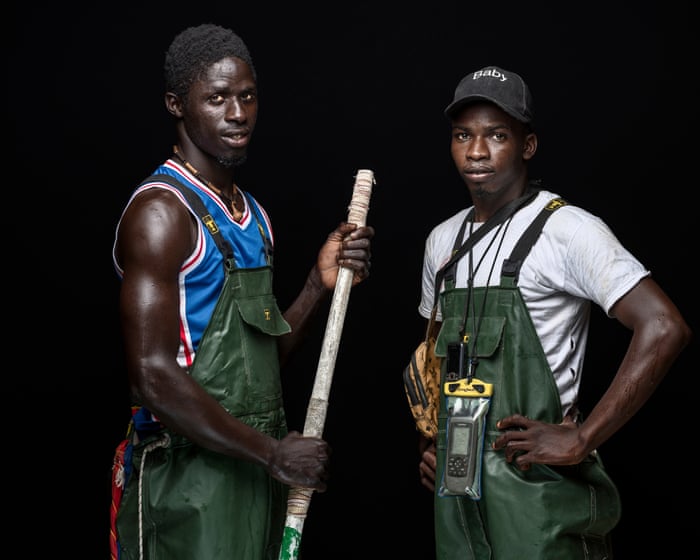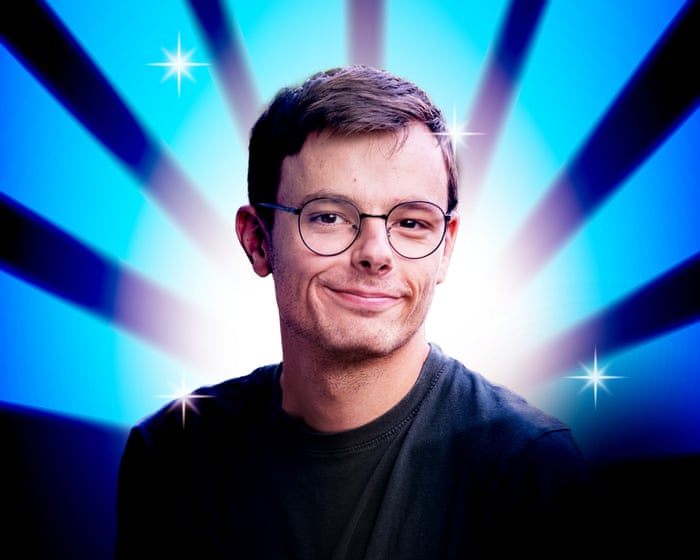Creating music used to be a real challenge. I recall when it demanded endless hours refining your craft, finding something meaningful or original to express, and then capturing sounds that others would actually enjoy. But that era is behind us. Now, a child can feed some words into a machine and get a catchy song in return. By 2025, a robot could be the next pop sensation. (Though Data from Star Trek released an album in the ’90s—seems we’ve already forgotten.)
Recently, three AI-generated songs hit the top of Spotify’s “Viral 50” chart. One creator, Broken Veteran, who produced a track on immigration, told The Guardian that AI is just another tool for expression, especially for those with ideas but no formal music training. In the past, if you didn’t know how to do something, you simply didn’t do it.
I’ll never be Shohei Ohtani—I’m not nearly handsome enough—but what if I could buy a robot to hit home runs for me? Would that make me a baseball player? Hardly, since I’d have achieved nothing, even with my name on the jersey.
AI art supporters often talk about “democratization,” arguing that these tools lower the barriers to creativity. But those barriers served a purpose: they spared us from enduring objectively poor work. Of course, that’s old thinking. Nowadays, the line between good and bad is blurred, replaced by a flood of mediocrity with the occasional gem surfacing.
Every day, thousands of AI songs are uploaded by people who aren’t musicians. I fail to see the benefit. Why do we need more music? I can’t keep up with what’s already out there. Spotify has over 100 million songs—why add to this overwhelming buffet? Did we really need an AI song titled “I Caught My Knackers in the Cutlery Drawer”? It doesn’t matter; it’s here anyway. It’s like when Apple forced that U2 album on us, but multiplied by a million. (And honestly, I’d rather listen to that AI track than Bono most days.)
At the heart of this AI-generated deluge is the obsession with scale. Companies in media and entertainment prioritize quantity over quality. More content—songs, shows, movies, books—means more chances to make money. More clicks, more watch time, more engagement, regardless of how it happens. Streaming services value how long something is viewed, not whether it’s finished. As Netflix put it, “Engagement (i.e., time spent) is our best proxy for member joy.” Only online does time spent equal happiness. If I spend an hour and a half assembling an Ikea dresser, does that mean I’m joyful? Listening to the AI song “That Fart Woke Me Up” for two minutes and forty seconds was anything but enjoyable, but algorithms don’t care about that. Happiness can’t be measured, even if a Rotten Tomatoes score suggests otherwise.
This is the real tragedy of AI-generated content and the fixation on scale: human experience takes a backseat to lines of code or spreadsheet metrics. Take “Walk My Walk,” a chart-topping song thought to be AI-made by Breaking Rust. It’s a mediocre country tune about self-expression and overcoming doubt—a common theme when a human writes it, but here it feels hollow.The irony is that a song about believing in yourself was apparently created by a computer. When you hand over your artistic voice to a machine, you bring in a middleman to your expression. Something else is literally speaking for you—you aren’t saying anything. The machine is, based on your instructions. When someone uses AI to write a thank-you email or a personal essay, they’re giving up their duty to express themselves honestly.
Technology was once viewed as a tool for our creativity. A pencil made it simpler to jot down our thoughts. A typewriter and a personal computer did the same, boosting our ability to convey our feelings and desires. Now, technology is actively getting in the way of our dreams. Artificial intelligence isn’t a creative tool; it’s like a nanny who burps babies and feeds them mashed peas every few hours. If I don’t have to invest time in learning to write or make music, what’s left for my creative life? I guess I could spend more time consuming content. I could dedicate my remaining days to listening to all 100 million songs on Spotify. Doesn’t that sound utterly dreadful?
Dave Schilling is a writer and humorist based in Los Angeles.
Frequently Asked Questions
Of course Here is a list of helpful and clear FAQs about the idea that technology should enhance our creativity not take it away
Understanding the Concept
Q What does it mean that technology should enhance not take away our creativity
A It means we should use technology as a powerful tool to bring our own ideas to life rather than letting it do all the creative work for us The goal is to use tech to amplify our imagination not replace it
Q Isnt technology like AI just automating creative tasks
A It can but it doesnt have to Think of AI as a superpowered assistant that can generate ideas draft concepts or handle tedious parts of a project freeing you up to focus on the higherlevel creative decisions that require a human touch
Benefits and Advantages
Q How can technology actually boost my creativity
A It can remove barriers Technology gives you instant access to inspiration powerful tools and the ability to easily experiment and undo mistakes which encourages creative risktaking
Q Can you give me a realworld example of tech enhancing creativity
A A musician uses a digital audio workstation to compose They can layer dozens of instrument sounds edit notes with precision and collaborate with other musicians across the globeall things that were much harder or impossible with just a physical piano
Common Problems and Pitfalls
Q Whats the biggest risk of using technology for creative work
A The biggest risk is becoming passive If you only use premade templates or let an AI generate a complete final product without your input youre not exercising your creative muscles You become a consumer of the tool rather than a creator with it
Q I feel overwhelmed by all the features in creative software How do I avoid this
A This is common Start by learning one or two key features that achieve what you want Dont feel you need to master everything at once The technology should serve your vision not the other way around
Practical Tips and Best Practices
Q As a beginner how can I start using tech to be more creative
A Begin with a simple goal For example use a free phone app to edit your photos or a basic drawing app to sketch ideas The focus should be on expressing your



